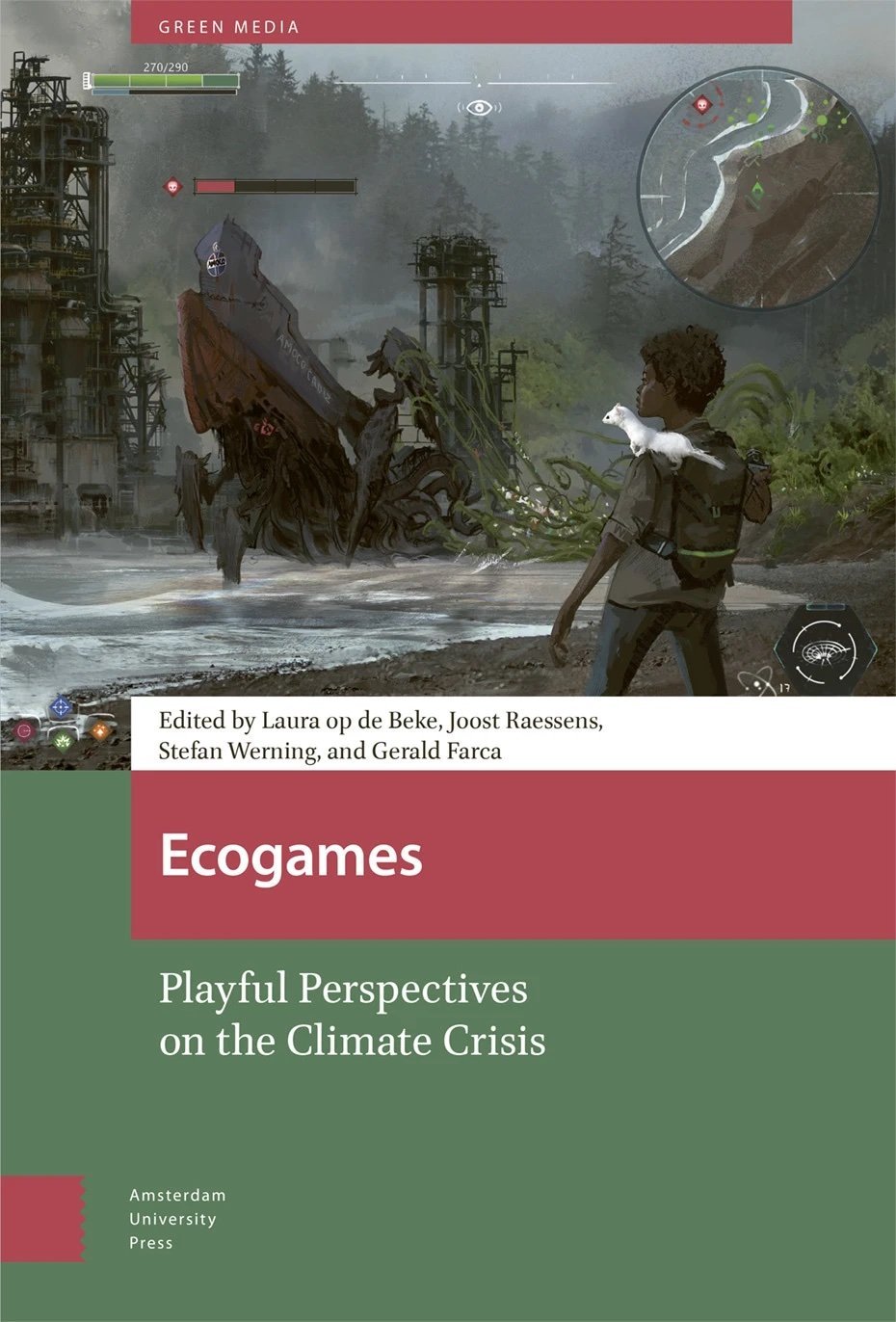New Publication Alert! ECOGAMES: Playful Perspectives on the Climate Crisis.
MGC researchers have been working on and contributing to a large-scale project on games and climate change since 2021, exploring the idea of ‘ecogames’ with colleagues across Europe and beyond. The latest work to come out of this collaboration is a collection of essays, Ecogames: Playful Perspectives on the Climate Crisis. The book has been published by Amsterdam University Press this month.
According to the volume editors, ‘with the climate crisis and its repercussions becoming more and more tangible, games are increasingly participating in the production, circulation, and interrogation of environmental assumptions, using both implicit and explicit ways of framing the crisis. Whether they are providing new spaces to imagine and practice alternative forms of living, or reproducing ecomodernist fantasies, games as well as player cultures are increasingly tuned in to the most pressing environmental concerns.
This book brings together chapters by a diverse group of established and emerging authors to develop a growing body of scholarship that explores the shape, impact, and cultural context of ecogames. Among the authors are eight scholars participating in STRATEGIES: Thomas Bjørner, Sonia Fizek, Pawel Frelik, Chloé Germaine, Joost Raessens, Joost Vervoort, Paul Wake, and Stefan Werning. The book comprises four thematic sections, Today’s Challenges: Games for Change, Future Worlds: New Imaginaries, The Nonhuman Turn, and Critical Metagaming Practices. Each section explores different aspects of ecocritical engagement in and through games. As a result, the book’s comprehensive scope covers a variety of angles, methodologies, and case studies, significantly expanding the field of green media studies.’ - Joost and Stefan
In the volume you can find Paul Wake and Chloé Germaine’s work on game hacking and climate change. This chapter explains the methodology and research design of a participatory project (read about that here!) that investigates how board games can support young people’s understanding of, and action on, the climate crisis. The chapter moves beyond the consideration of board games as a tool for climate education and investigates them as a means for young people (aged 16–19) to explore and communicate their ideas about climate change through processes of playing, hacking, breaking, and remaking games. Game researchers, climate educators, and activist groups will find the chapter gives them practical tools for working with games on this topic.
The book is available open access, so you can read this and all the other chapters for free here.
